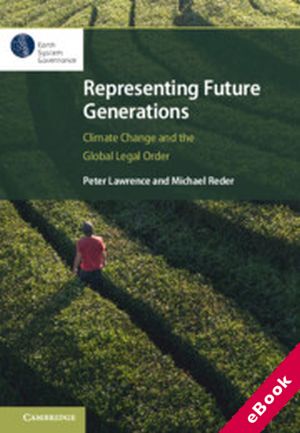
The device(s) you use to access the eBook content must be authorized with an Adobe ID before you download the product otherwise it will fail to register correctly.
For further information see https://www.wildy.com/ebook-formats
Once the order is confirmed an automated e-mail will be sent to you to allow you to download the eBook.
All eBooks are supplied firm sale and cannot be returned. If you believe there is a fault with your eBook then contact us on ebooks@wildy.com and we will help in resolving the issue. This does not affect your statutory rights.
The impact of climate change on young people and future generations has become a key issue globally, and current international law-making processes insufficiently represent the interests of these groups. While ideally the interests of future generations would be mainstreamed, the authors argue that proxy-style mechanisms for representing future generations should urgently be pursued as a parallel strategy. This book analyses existing institutions in the UN which indirectly represent vulnerable groups and uses a novel combination of legal and philosophical methods based in the tradition of John Dewey's pragmatism and International Legal Realism.
Chapters include case studies of climate change cases brought before international courts, tribunals and the UN envoy to demonstrate how representation of future generations can be implemented to bring about institutional reforms. Written in accessible language, it will make a useful reference for researchers, graduate students and policymakers in international environmental law, global environmental governance and environmental philosophy.